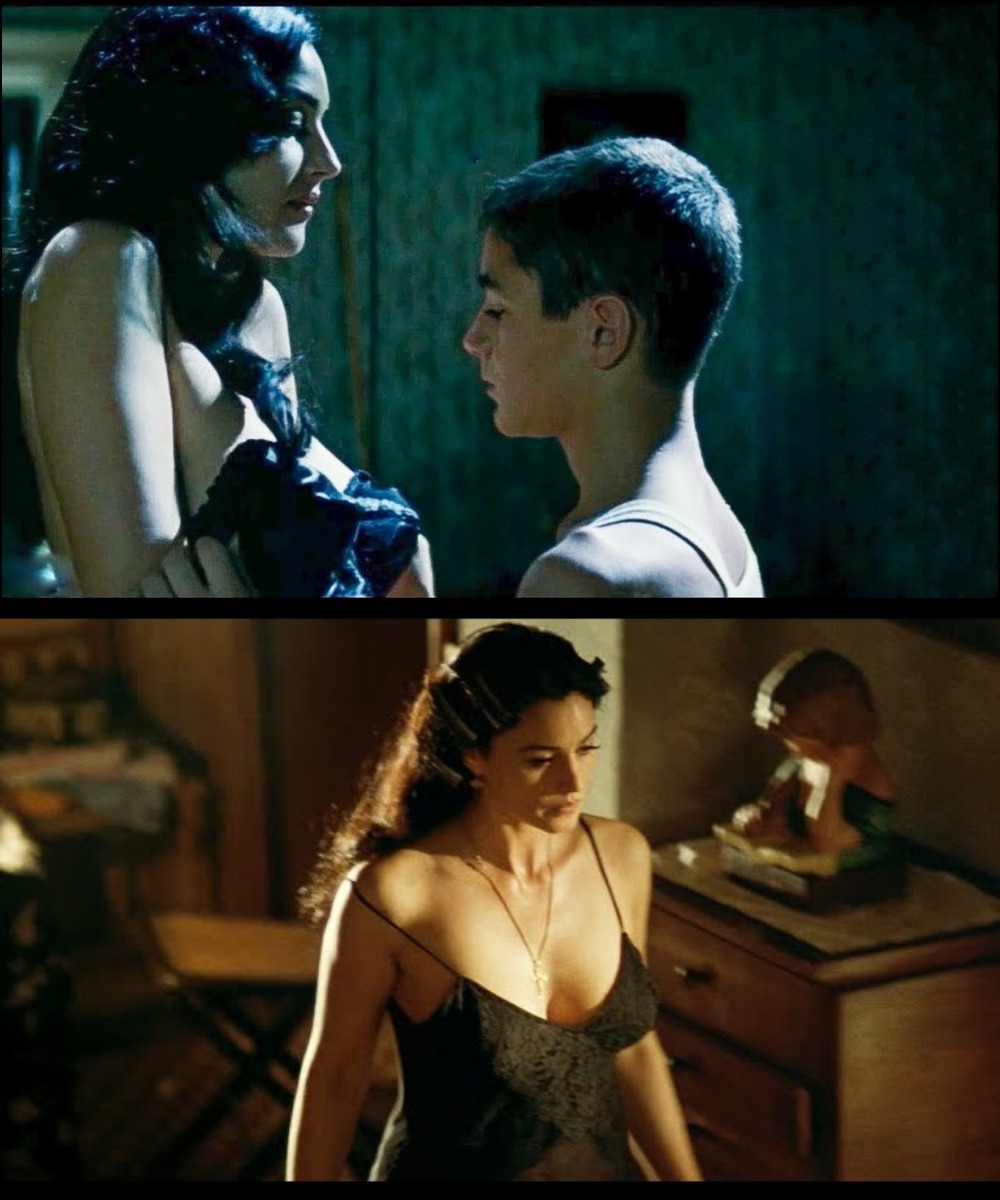directed by Giuseppe Tornatore, is a haunting, sensual, and poignant coming-of-age film that delves into themes of beauty, desire, and the harshness of gossip, all seen through the eyes of a young boy growing up in wartime Sicily. Set against the backdrop of World War II, the story is narrated by Renato (Giuseppe Sulfaro), a 13-year-old whose world is forever changed when he becomes infatuated with the town’s most beautiful and mysterious woman: Malèna, portrayed by Monica Bellucci in a career-defining role.
Malèna is a war widow, breathtakingly beautiful and painfully isolated. Her presence commands the silent attention of every man and draws spiteful resentment from the women in town. As rumors spread and judgment festers, she becomes the town’s scapegoat, enduring cruelty and degradation. Renato watches it all unfold, mesmerized and helpless, trapped between childish fantasy and the harsh realities of adulthood.


Monica Bellucci’s performance is extraordinary in its restraint. With minimal dialogue, she conveys Malèna’s sorrow, dignity, and inner strength through expression and quiet grace. Her character stands as a symbol—reflecting both the town’s moral decay and Renato’s yearning, making her at once deeply human and tragically objectified.
Tornatore paints the film with nostalgia and lyrical beauty, enhanced by Ennio Morricone’s evocative, aching score. The cinematography moves between warm, dreamlike tones and stark, unflinching realism, capturing both the innocence of youth and the ugliness of societal judgment.
More than a tale of adolescent obsession, Malèna is a powerful commentary on how society punishes women—especially those who are different, too beautiful, or too independent. It’s a film about loss of innocence, the cruelty of conformity, and the ache of unspoken love. Tender and tragic, it stays with the viewer as a quietly devastating reflection on memory, desire, and the passage into adulthood

